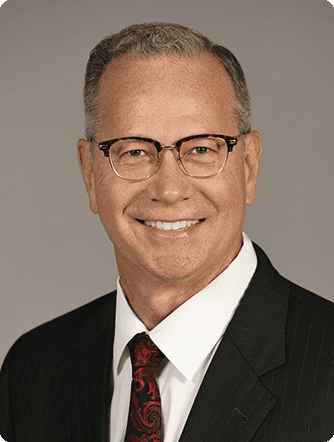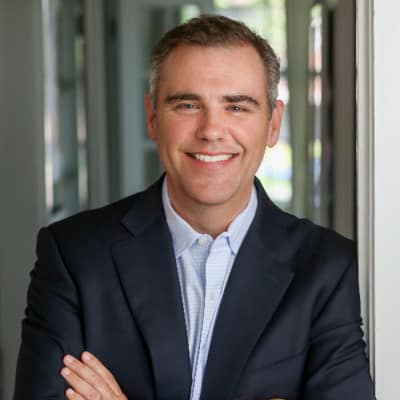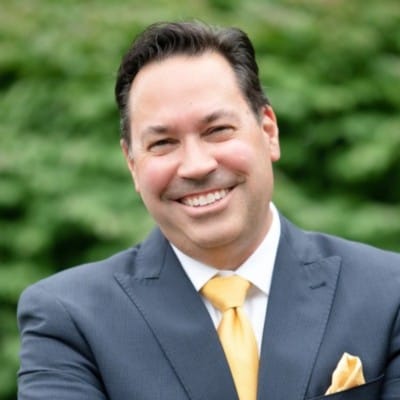To make Wealthtender free for readers, we earn money from advertisers, including financial professionals and firms that pay to be featured. This creates a conflict of interest when we favor their promotion over others. Read our editorial policy and terms of service to learn more. Wealthtender is not a client of these financial services providers.
➡️ Find a Local Advisor | 🎯 Find a Specialist Advisor

Kids’ cartoons (at least ones from the 60s and 70s) are full of offbeat wisdom.
Of course, most of it goes right over the heads of their intended audience, kids. However, it seems to also go over the heads of many of us adults, who should arguably know better.
Case in point – Wile E. Coyote chases the Roadrunner at full speed. He focuses so much on taking each next step as fast as he possibly can, his legs start looking like propeller blades.
It’s just after he runs out of road and finds himself “running on air” that he realizes he’s toast.
We see that and laugh at the less-than-wily coyote and his antics.
But are we so much better?
Don’t we also focus so much on what we’re trying to accomplish right now that we forget to raise our eyes to see what’s coming down the pike? Then, that far future becomes the present and we suddenly realize we’re woefully unprepared to deal with it. Going back to the hapless coyote metaphor, we run out of road and realize we’re toast.
“I’ll Work Until I’m Dead!” Really?!
My dad was a successful HR manager.
He was the 3rd-highest-ranking HR officer in the Israel Defense Force until he retired as a full colonel.
He ran the HR departments at some of Israel’s largest corporations and agencies.
The CEOs he worked for always had the greatest respect for him. He was integrity personified. He’d never deceive or cover up anything. He cared for the employees he managed. He felt a duty to his direct reports to make sure they performed at their best (just as he expected from himself).
Once, he ran into a woman who had been a junior officer under his command. She diffidently shared with him that back in the day, she had been terrified of him.
“Terrified?! Of me?!” he asked in a disbelieving tone. “Did I ever raise my voice to you? Mistreat you?”
“No! Never!” she replied.
“Then why were you terrified?”
“You’d assign me a task, and when I was done, I’d approach your office to report on my work. I’d raise my hand to knock, only to stop and ask myself what questions you’d ask that I wasn’t prepared enough to answer. I’d turn on my heel and go back to my desk until I could answer those questions. Only then would I feel confident enough to report to you.”
Without my dad ever raising his voice, threatening, or abusing his subordinates, he instilled in them the sense that they needed to always strive to do their best, anticipate, and prepare. I can only imagine how successful that made them for the rest of their careers.
Then, when he was in his mid-50s, his contract as HR manager for the Israel Ports Authority was up for renewal. After excelling in his initial year there, his CEO was ready to sign a multi-year extension. Suddenly, the minister of transportation directed the CEO not to renew dad’s contract. Dad had been a member of another party for decades. He’d never sought political office, but he wasn’t on that minister’s list of favorites. The minister made it clear that the contract needs to go to one of his cronies.
Just like that, dad was out.
He spent the next year looking for another position.
Suddenly, his reputation as the ultimate straight-shooter and high performer made it impossible to find work. Some CEOs felt threatened that he’d outshine and edge them out. Others knew he wouldn’t go along with whatever less-than-legit schemes they had going on. So, they all replied that whatever position they had open was beneath him, that he was over-qualified, or some other excuse.
That’s how, in his 50s, dad found himself unable to get another position in his field. He hadn’t planned to retire early, but the future arrived unpredictably early. He lived another 36 years in retirement.
It was a good thing dad was a long-term planner. He’d already paid off the mortgage. He had his military pension, another government agency pension, and multiple other retirement plans he’d funded along the way. While my parents were never wealthy, they were able to maintain a nice middle-class life despite being forced to retire early.
Few people are forced out of work by a corrupt politician, but many are forced to stop working before they planned to because of ill health, corporate downsizing, having to care for a sick spouse, etc. Then, even though they’re ready, willing, and able to start another job, they often find that getting a decent job in their 50s or 60s is really hard.
As the joke goes, “If you want to make G-d laugh, tell Him your plans.”
So, unless you’re prepared to commit suicide as soon as you’re forced to stop working (in which case, please seek help), “I’ll work until I die” isn’t a plan.
Why People “Plan” on Working Until They Die – the “Sour Grapes” Syndrome
I can’t count how many times I’ve heard or read someone saying that it’s too hard to ever set aside any money, let alone enough to retire.
I get it.
Having to support a family of 4 on a $31,000 salary for several years early in my career, believe me when I say I get it.
However…
The fact that something is hard, even extremely hard, doesn’t mean it’s not worth trying.
Those who aren’t willing to do that hard work are like the fox in Aesop’s famous fable…
“A Fox one day spied a beautiful bunch of ripe grapes hanging from a vine trained along the branches of a tree. The grapes seemed ready to burst with juice, and the Fox’s mouth watered as he gazed longingly at them.
The bunch hung from a high branch, and the Fox had to jump for it. The first time he jumped he missed it by a long way. So he walked off a short distance and took a running leap at it, only to fall short once more. Again and again he tried, but in vain.
Now he sat down and looked at the grapes in disgust.
‘What a fool I am,’ he said. ‘Here I am wearing myself out to get a bunch of sour grapes that are not worth gaping for.’
And off he walked very, very scornfully.”
“I’m Not Willing to Manage My Money” Is Not a Plan
I’ve worked with NASA for more than 20 years now, and one of the things they do really well is managing risks.
No matter how brilliant the people working on a project, no matter how much money you invest in it, Murphy will always be there, waiting to catch you unaware.
That’s why, like that woman subordinate of my dad’s, you have to think ahead and anticipate the problems that could happen, do what you can to reduce their likelihood, and develop plans to address these risks if they turn into actual issues.
The Bottom Line
Even if you love your work (as I love mine), or if you plan to develop a side hustle and build it into a business you love, planning to never retire is not a plan. It’s just being unwilling to tackle a hard task. It’s being like Aesop’s fox, calling the ability to retire “sour grapes” so you feel better about giving up on it.
To be clear, there are certainly people who suffer truly crushing poverty and can’t even cover today’s expenses, let alone save and invest for the future.
This article isn’t addressed to them.
It’s addressed to those of us who have a reasonable (or even great) income, but due to lifestyle inflation, always live paycheck to paycheck, never saving and investing.
And guess what… If you do end up loving your work so much and having life cooperate so well that you keep working literally until you die, your end result will be that you saved too much. Your inheritors (or favorite charities) will be grateful and bless your memory. Isn’t that far better than risking being forced to retire with no way to cover your expenses, falling into abject poverty, losing your home, and struggling to feed yourself?
Find Your Next Financial Advisor on Wealthtender
📍 Click on a pin in the map view below for a preview of financial advisors who can help you reach your money goals with a personalized plan (so you can avoid working until you’re dead!). Or choose the grid view to search our directory of financial advisors with additional filtering options.
📍Double-click or pinch pins to view more.
Disclaimer: This article is intended for informational purposes only, and should not be considered financial advice. You should consult a financial professional before making any major financial decisions.

About the Author
Opher Ganel, Ph.D.
My career has had many unpredictable twists and turns. A MSc in theoretical physics, PhD in experimental high-energy physics, postdoc in particle detector R&D, research position in experimental cosmic-ray physics (including a couple of visits to Antarctica), a brief stint at a small engineering services company supporting NASA, followed by starting my own small consulting practice supporting NASA projects and programs. Along the way, I started other micro businesses and helped my wife start and grow her own Marriage and Family Therapy practice. Now, I use all these experiences to also offer financial strategy services to help independent professionals achieve their personal and business finance goals. Connect with me on my own site: OpherGanel.com and/or follow my Medium publication: medium.com/financial-strategy/.
Learn More About Opher
To make Wealthtender free for readers, we earn money from advertisers, including financial professionals and firms that pay to be featured. This creates a conflict of interest when we favor their promotion over others. Read our editorial policy and terms of service to learn more. Wealthtender is not a client of these financial services providers.
➡️ Find a Local Advisor | 🎯 Find a Specialist Advisor
























